Ever since the role of data scientist was considered as the century’s hottest job by the Harvard Business Review, the field has been attracting almost countless people coming from many different backgrounds. In today’s tech-driven world, almost every company or business is trying to leverage big data – from market leaders to government institutions to non-profit organizations. As a result, the demand for data scientists has become an all-time high. But is it actually possible to become a data scientist for anyone? Of course, one can learn some tools used in the data science field and call himself or herself a data scientist, but that’s actually far from the truth. However, it’s possible for everyone to become a data scientist these days, indeed with a robust plan. In this post, we’re going to discuss the data scientist learning path following which anyone can become a part of this sophisticated, smart and glamorous league of professionals.
1- What’s a data scientist?
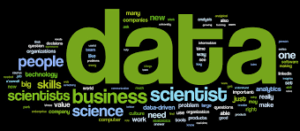
Before delving deeper into the learning path, let’s have a quick look at what a data scientist actually does. Data science is a complex field and it involves lots of different skills that contribute toward making the position even more important. In its simplest form, a data scientist can be considered as someone who has the ability of capturing and analyzing a massive amount of data in order to reach a conclusion. They perform this through different high-end tools and techniques. Essentially, a data scientist looks for meaning in huge amounts of data.
The key reason behind the emergence of the data scientist role is the need to understand the usually messy and huge amounts of data captured by fast-growing companies. These companies are trying to glean actionable insights about their business as well as customers with this data, but the professionals needed to perform this task are in short supply.
Another factor that contributed heavily toward increasing the demand for data scientists is that business leaders of today not only just want to know what happened, but they also want to know what’s happening, what’ll happen in the future, and how will it impact their business operations.
2- How can anyone become a data scientist?
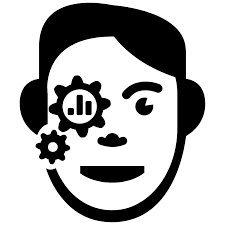
As we’ve already discussed that it’s almost impossible for companies to manipulate and make sense of the data they capture on their own. As a result, many organizations are more than willing to pay an attractive salary for a good data scientist. With an excellent number of high-paying job opportunities, data science has become the field to be in at the moment. The data science field is growing and it’ll continue to do so for the foreseeable future.
Whether you’re a working professional looking to step into the field, a student planning for your future or are belong to a different background like the non-coders league, there’re ways to become a data scientist and it’s never too late to start your journey. Regardless of your present exposure to data science, here’re the skills you need to have to succeed in your endeavor.
2.1- Mathematics and statistics
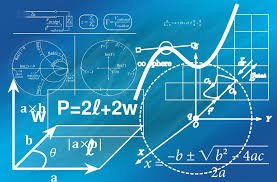
Mathematics is a subject of which lots of people are scared of, but if you want to be a successful data scientist, you’ve to get your concepts cleared on things like probability, linear algebra etc. Put simply, probability refers to the measure of how likely something is going to happen.
In the data science field, there’re lots of events that cannot be predicted with complete certainty. So, concepts like Bayes Theorem, probability distribution etc are much needed to perform data science. Linear algebra deals with vector spaces. It’s crucial to understand different ideas behind different techniques of linear algebra like Time Series, Clustering, among others to understand their applicability.
Statistics is a crucial part of analyzing and interpreting the data. A lot of statistical concepts are used to perform data science, so a good understanding of them is essential.
2.2- Coding
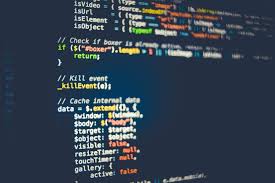
More and more employers of data scientists are looking for candidates who’re conversant with programming languages like Python, R, Java etc. A good understanding of these languages is a must to succeed as a data scientist. You should understand that this isn’t about being an excellent coder but it’s all about being comfortable with different programming environments to be able to work with data as and when required. If you can demonstrate the expertise to adapt to the changes in the technological landscape, it’ll surely be considered as a good advantage.
2.3- Machine learning
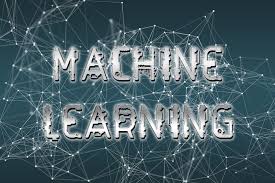
It’s a field that provides computers with the ability to make decisions based on earlier data or previous experience. It’s a group of algorithms that use machine power to derive insights for you. To become a good data scientist, you should have a good understanding of neural networks, adversarial learning, reinforcement learning, supervised machine learning, logistic regression, decision trees, among others. In the data science field, different machine learning skills are used to perform different activities. So, it’s wise to be familiar with them.
2.4- Data visualization
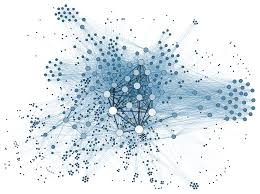
Once you’ve done working with your data analysis, you’ll need to convince others to adopt your insights. Being visual creatures, it’s typically much easier for humans to consume the information by examining a graph or chart than by going through the numbers.
As a data scientist, you’ve to be able to visualize data with the help of data visualization tools like Tableau, ggplot, D3.js etc. These tools help you to convert complicated results from your findings to an easily consumable format. With data visualizations, organizations can grasp insights quickly to act on different business opportunities.
2.5- Analytical mindset

An overall analytical mindset is required to do well as a data scientist. Essentially, these people need to spend a huge percentage of their time in discovering and preparing data. So, as a part of that league, you’ve to be able to raise questions about data. Keep on updating your knowledge by reading relevant resources to be able to channel your thinking in the right direction.
2.6- Strong business acumen

As a matter of fact, most organizations that work with data depend on their data scientists not only to mine huge datasets but also to communicate the insights to decision makers. An effective data scientist should not only come with the ability to work with complex, massive datasets but with the understanding of the intricacies of the business he/she works for.
Having good business knowledge allows him/her to ask the right questions and come up with actionable solutions which are actually feasible for the business. In the context of data science, being able to understand which problems are crucial to solving for the business plays an extremely important role.
3- Different ways to become a data scientist

There’re different ways to become a data scientist, but it’s completely impossible to become one without a college education. At the very least, you’ll need a Bachelor’s degree to pursue further study. Also, if your goal is to land a leadership position, you should try to earn a Master’s degree or Ph.D.
There’re three main ways to become a data scientist – the traditional way, self-learning, and by attending a reputed school (like Magnimind Academy) that offers data science prep course and data science bootcamp. If you look at the traditional way, it may not be feasible for everyone to go back to school to complete a Master’s degree, both in terms of time and increasing educational cost.
If you consider the self-learning method, you can obviously learn many things but one of the major drawbacks of being self-taught is that your knowledge may not be complete and you may not be aware of that. Also, you won’t be able to measure your learning progress through this method.
Coming to the third option, institutes that offer data science degrees have become quite an obvious choice to aspiring data scientists. Even if you’re coming from a different background, the non-coders group, for example, data science prep courses offered by these schools are sufficient enough to provide you with the necessary skills based on which you can move forward to attend a data science bootcamp. Another major advantage of attending these schools is that they let you step into the field in a much shorter span of time (usually data science bootcamps come with the duration of 6-12 weeks) and around the one-fifth cost of attending a 2-year Master’s program. So, if you have the basics right like having a college degree, analytical bend of mind and mindset to put your best effort in, you can surely become a data scientist by attending one of these institutes.
In conclusion

Regardless of the path you prefer to take to become a data scientist, it’s always crucial to keep some things in mind. For example, finding a mentor, working on increasing your network, visiting data science conferences, meetups etc play important roles in establishing yourself in the industry.
In addition, as different technologies will come and go in the field, it’s important that you keep on learning continuously about new tools and technologies to stay on the same page with industry trends and remain in demand.
. . .
To learn more about data science, click here and read our another article.


